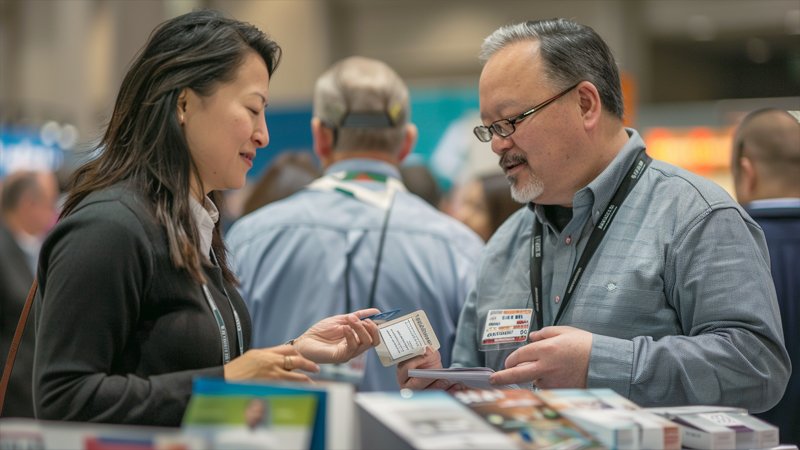
I once struggled to find a trustworthy sourcing agent, until I learned some key strategies to spot the best ones.
Choosing a reliable procurement agent in China involves checking credentials, verifying reputation, seeking personal referrals, and staying alert for red flags.
These steps helped me avoid costly mistakes.
What are the key criteria for selecting reliable procurement agents?
I’ve found that a few basic factors matter most.
Look for experience, transparent communication, ethical standards, and clear fee structures when choosing procurement agents.

When I started searching for a sourcing partner in China, I focused on agents with substantial experience in my specific industry. After a few missteps, I realized that an agent’s background sets the tone for everything else. If they already know your product line—say, textiles or electronics—they’ll likely have stronger connections with reliable factories. Communication was another big deal. Agents who answered my questions openly and provided regular status updates earned my trust. I also came to appreciate those with clear fees. Vague or hidden costs are never a good sign.
Beyond that, ethical practices1 matter more than I initially thought. A sourcing agent might offer cheap prices, but if they cut corners or collude with unethical suppliers, you could end up with subpar quality or late shipments. Always ask about how they vet factories. Do they visit them in person? Do they follow compliance checks? I try to confirm these details before signing any agreement.
Digging into Core Criteria
Working with a reliable procurement agent can feel like adding a local friend to your team. They help bridge language barriers, explain cultural nuances, and often handle negotiations that might be stressful from afar. However, choosing the right one requires a bit of detective work. I’ve found it helpful to do an initial video call—observing how they respond to queries, their body language, and their grasp of my concerns. If they appear knowledgeable and eager to assist, I see that as a positive signal.
I also like to see if they have relevant certifications. While not all legitimate agents hold formal qualifications, many reputable sourcing professionals join industry associations or attend key trade fairs. That involvement suggests a commitment to staying informed. You can also check if they run an official website or social media page. Companies that invest time in a professional online presence often take pride in their reputation.
Another trick is to discuss a potential trial project2. Instead of handing over your entire product range, start small. Let the agent demonstrate their skills on a minor purchase order. This approach lowers your risks—and if the partnership works well, you can move on to bigger collaborations. In my experience, a structured, step-by-step evaluation keeps me from rushing into long-term deals with the wrong people. It also ensures I recognize those truly dedicated to meeting my needs and delivering high-quality results.
How can you assess the reputation of Chinese procurement agents?
Reputation means everything when sourcing overseas.
Review online feedback, check industry forums, and request references to confirm an agent’s track record.

The first time I hired an agent, I spent hours digging through online reviews3. It was tedious, but reading about real clients’ experiences offered valuable insights I couldn’t have found elsewhere. Industry-specific forums or social media groups can also be goldmines of honest feedback—people are surprisingly open when sharing both positive and negative stories.
Steps to Evaluate Reputation
Start by Googling the agent’s name and company. Are there any business registries listing them as verified? Do you see consistent contact details and addresses, or do they vary from site to site? Be cautious if you notice incomplete or mismatched information, as scammers often use multiple aliases. Then, move on to platforms like LinkedIn or trade-specific communities. See if they actively engage in discussions or if clients have tagged them in posts about successful transactions.
I’ve also found it helpful to request references4 directly. Legitimate agents usually have no problem letting you speak with past or current clients. When you chat with these references, ask about communication quality, whether deadlines were met, and if any hidden costs cropped up. Keep your radar up for vague or overly general endorsements—while not necessarily a deal-breaker, it’s wise to seek specific examples of successful deals or problem-solving abilities.
If possible, check if they’ve attended well-known trade fairs, like the Canton Fair. Sourcing agents who regularly participate in such events often prioritize networking and reputation, which is a good sign they’re invested in long-term success. At the end of the day, a thorough reputation check might feel time-consuming, but it saves you from bigger headaches down the line. Trust me, I’ve learned that lesson the hard way.
How can you find trustworthy procurement agents through recommendations?
I’ve discovered that personal referrals are often the best leads.
Ask friends, industry contacts, or business owners who have worked with reliable agents before.

When I needed a new sourcing agent, I started by tapping into my professional network. I reached out to a fellow entrepreneur who imports home goods from China and asked if she had any suggestions. She connected me with an agent who not only had relevant experience but also maintained a stellar reputation among several importers I knew. That single recommendation saved me weeks of searching.
Harnessing Personal Connections
Referrals typically offer extra peace of mind. If someone you trust has already done business with an agent, they can share firsthand experiences—whether it’s about fair pricing, honest timelines, or consistent quality. Plus, recommended agents know their reputation is on the line, so they’re more likely to go the extra mile to impress your circle of contacts.
I also found it beneficial to attend trade shows or industry conferences5, where I could meet potential agents face-to-face. It’s easier to build trust when you can chat about your specific sourcing needs, watch them respond, and gauge their expertise in real time. And if you can’t attend in person, sometimes a virtual meeting works just as well—like scheduling a Zoom call with an agent introduced by a mutual contact.
If you’re in a social media group or an online forum6 geared toward importers, don’t be shy about asking for recommendations. I’ve seen countless threads where members share their top picks or warn each other about questionable agencies. Just keep in mind that not every referral is guaranteed success—do your usual due diligence. Still, a strong endorsement from someone you respect often speaks volumes, trimming the research time and helping you feel more confident about your choice. It’s almost like borrowing a friend’s map to navigate a foreign city: you still have to walk the path yourself, but it’s far less likely you’ll get lost.
What tips can help you avoid choosing dishonest procurement agents?
Recognizing red flags early can save you major hassles.
Watch for vague fees, refusal to provide references, or inconsistent contact details—common signs of potential scams.

My biggest headache came from an agent who kept dodging my requests for references. Something felt off, but I ignored my gut to move forward quickly. It didn’t end well. After that ordeal, I made a list of warning signs and stuck to it whenever I scouted new sourcing partners.
Steering Clear of Dishonesty
- Vague Payment Terms: If an agent demands full payment upfront—or constantly changes the price—be wary. A professional agent should offer clear, itemized costs.
- Refusal to Share References: If they dodge your request or claim “client confidentiality” without offering any workaround, it might be a sign they have no positive track record to share.
- Poor Communication: Long delays in response or contradictory information in emails can hint at disorganization or worse.
- No Online Presence: Not every legitimate agent has a huge digital footprint, but having zero website, LinkedIn profile, or business listing is suspicious in today’s world.
I also watch out for pushy agents who try to rush me into decisions. Sometimes they’ll claim there’s a once-in-a-lifetime deal that’s about to expire, or they’ll say the factories they work with have “limited slots.” Yes, certain manufacturing schedules fill up fast, but a reputable agent won’t pressure you so aggressively. Real partnerships are built on mutual respect and clarity, not scare tactics.
Finally, if something feels too good to be true—like drastically low pricing or guaranteed lightning-fast production—take a step back. There’s a fair chance corners might be cut, resulting in substandard items or delayed shipments. Personally, I’d rather pay a slightly higher price for peace of mind and consistent quality than chase a bargain that ends up costing me more in the long run. After all, trust is the backbone of any successful sourcing relationship, so preserving it should be your top priority.
Conclusion
Selecting a trustworthy sourcing agent in China requires patience, research, and a keen eye for warning signs.
-
Exploring the importance of ethical practices can safeguard your business from potential risks and ensure sustainable and responsible sourcing. ↩
-
A trial project offers a practical way to assess the capabilities and reliability of a procurement agent before committing to a long-term partnership. ↩
-
Online reviews provide real client experiences, offering insights that are crucial for making informed decisions when selecting a sourcing agent. ↩
-
Requesting references allows you to directly hear from past clients about their experiences, ensuring the agent's reliability and quality of service. ↩
-
This link offers valuable strategies and benefits of networking at trade shows, helping you maximize opportunities to find trustworthy sourcing agents. ↩
-
Discover how leveraging online communities can streamline your search for reliable sourcing agents, with tips on evaluating recommendations effectively. ↩




